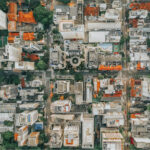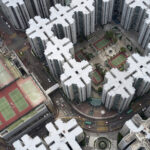The neighborhood social environment encompasses the non-physical aspects of communities, including the residents’ average levels of income, education, and employment, as well as social norms, stories, and perceptions of safety, social support and trust, civic participation, and mutual aid (Diez-Roux & Mair, 2010). There are many ways social environments can harm or bolster health. For example, a community’s social norms around drinking, smoking, or even mask-wearing in the time of Covid, strongly influence individuals’ health behaviors, shaping health outcomes (Ahern et al., 2015). Living in communities with high levels of violence or over-policing can increase chronic stress among residents (Smith et al., 2019). High-stress levels can become toxic, affecting the body’s ability to regulate its inflammatory and immune responses. This leads to an allostatic load, increasing the risk for multiple adverse health outcomes (McEwen, 2000; Ribeiro et al., 2018). At the same time, aspects of social environments such as social support, trust, and mutual aid can help individuals cope with toxic stress and care for one another to improve community health (Diez-Roux & Mair, 2010).
- Ahern, J., Balzer, L., & Galea, S. (2015). The roles of outlet density and norms in alcohol use disorder. Drug and Alcohol Dependence, 151, 144-150.
- Diez-Roux, A. V., & Mair, C. (2010). Neighborhoods and health. Annals of the New York Academy of Sciences, 1186(1), 125-145.
- McEwen, B. S. (2000). Allostasis and allostatic load: implications for neuropsychopharmacology. Neuropsychopharmacology, 22(2), 108-124.
- Ribeiro, A., Amaro, J., Lisi, C., & Fraga, S. (2018). Neighborhood Socioeconomic Deprivation and Allostatic Load: A Scoping Review. International Journal of Environmental Research and Public Health, 15(6), 1092. https://doi.org/10.3390/ijerph15061092
- Smith, N. A., Voisin, D. R., Yang, J. P., & Tung, E. L. (2019). Keeping your guard up Hypervigilance among urban residents affected by community and police violence. Health Affairs, 38(10), 1662-1669.





